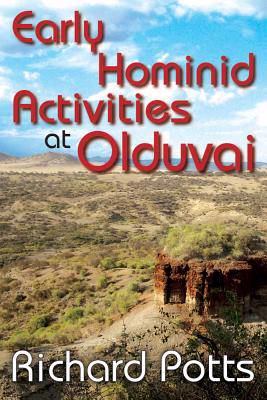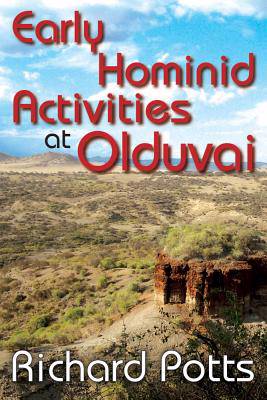
- Retrait gratuit dans votre magasin Club
- 7.000.000 titres dans notre catalogue
- Payer en toute sécurité
- Toujours un magasin près de chez vous
- Retrait gratuit dans votre magasin Club
- 7.000.0000 titres dans notre catalogue
- Payer en toute sécurité
- Toujours un magasin près de chez vous
Early Hominid Activities at Olduvai
Foundations of Human Behaviour
189,45 €
+ 378 points
Description
The earliest sites at Olduvai Gorge in Tanzania are among the best documented and most important for studies of human evolution. This book investigates the behavior of hominids at Olduvai using data of stone tools and animal bones, as well as the results of work in taphonomy (how animals become fossils), the behavior of mammals, and a wide range of ecological theory and data. By illustrating the ways in which modern and prehistoric evidence is used in making interpretations, the author guides the reader through the geological, ecological, and archeological areas involved in the study of humans.Based on his study of the Olduvai excavations, animal life, and stone tools, the author carefully examines conventional views and proposals about the early Olduvai sites. First, the evidence of site geology, tool cut marks, and other clues to the formation of the Olduvai sites are explored. On this basis, the large mammal communities in which early hominids lived are investigated, using methods which compare sites produced mainly by hominids with others made by carnivores. Questions about hominid hunting, scavenging, and the importance of eating meat are then scrutinized. The leading alternative positions on each issue are discussed, providing a basis for understanding some of the most contentious debates in paleo-anthropology today.The dominant interpretive model for the artifact and bone accumulations at Olduvai and other Plio-Pleistocene sites has been that they represent "home bases," social foci similar to the campsites of hunter-gatherers. Based on paleo-ecological evidence and ecological models, the author critically analyzes the home base interpretation and proposes alternative views. A new view of the Olduvai sites - that they represent stone caches where hominids processed carcasses for food - is shown to have important implications for our understanding of hominid social behavior and evolution.
Spécifications
Parties prenantes
- Editeur:
Contenu
- Nombre de pages :
- 408
- Langue:
- Anglais
- Collection :
Caractéristiques
- EAN:
- 9780202011769
- Date de parution :
- 31-12-88
- Format:
- Livre relié
- Format numérique:
- Genaaid
- Dimensions :
- 160 mm x 237 mm
- Poids :
- 716 g

Les avis
Nous publions uniquement les avis qui respectent les conditions requises. Consultez nos conditions pour les avis.





